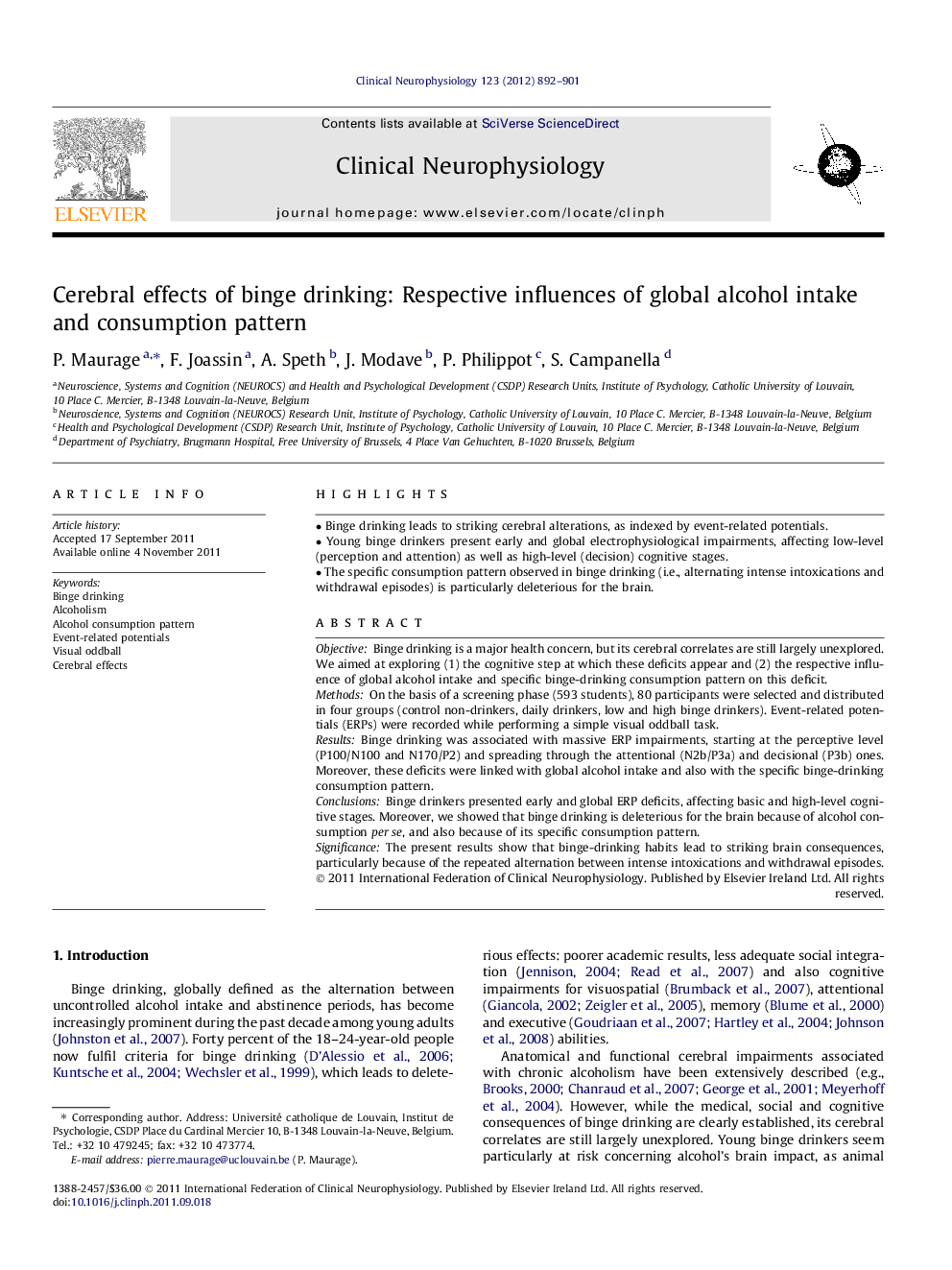| Article ID | Journal | Published Year | Pages | File Type |
|---|---|---|---|---|
| 3045282 | Clinical Neurophysiology | 2012 | 10 Pages |
ObjectiveBinge drinking is a major health concern, but its cerebral correlates are still largely unexplored. We aimed at exploring (1) the cognitive step at which these deficits appear and (2) the respective influence of global alcohol intake and specific binge-drinking consumption pattern on this deficit.MethodsOn the basis of a screening phase (593 students), 80 participants were selected and distributed in four groups (control non-drinkers, daily drinkers, low and high binge drinkers). Event-related potentials (ERPs) were recorded while performing a simple visual oddball task.ResultsBinge drinking was associated with massive ERP impairments, starting at the perceptive level (P100/N100 and N170/P2) and spreading through the attentional (N2b/P3a) and decisional (P3b) ones. Moreover, these deficits were linked with global alcohol intake and also with the specific binge-drinking consumption pattern.ConclusionsBinge drinkers presented early and global ERP deficits, affecting basic and high-level cognitive stages. Moreover, we showed that binge drinking is deleterious for the brain because of alcohol consumption per se, and also because of its specific consumption pattern.SignificanceThe present results show that binge-drinking habits lead to striking brain consequences, particularly because of the repeated alternation between intense intoxications and withdrawal episodes.
► Binge drinking leads to striking cerebral alterations, as indexed by event-related potentials. ► Young binge drinkers present early and global electrophysiological impairments, affecting low-level (perception and attention) as well as high-level (decision) cognitive stages. ► The specific consumption pattern observed in binge drinking (i.e., alternating intense intoxications and withdrawal episodes) is particularly deleterious for the brain.
